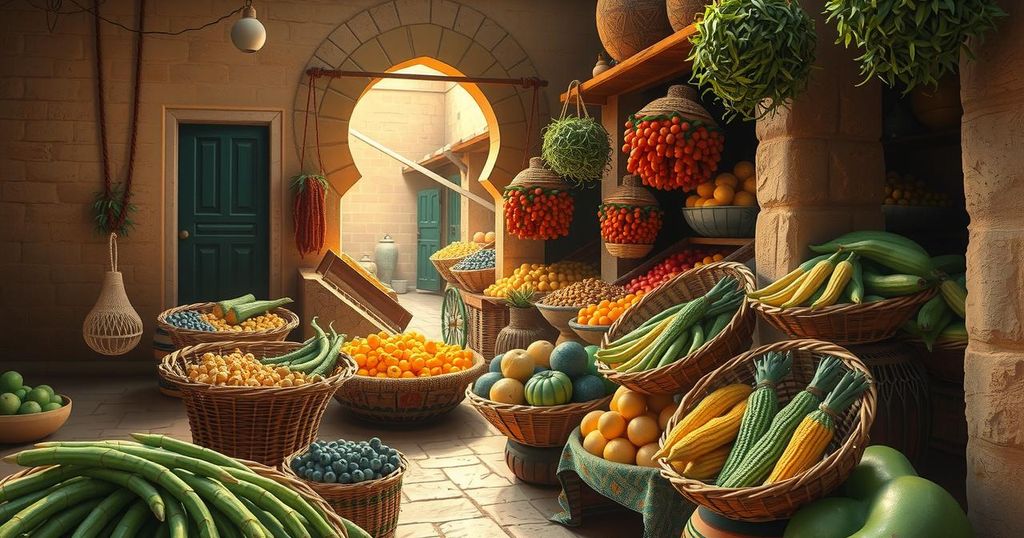Morocco Increases Date Imports Amid Agricultural Challenges for Ramadan

In preparation for Ramadan, Morocco is set to import more dates due to weak local production caused by drought. The majority of dates available in markets are sourced internationally. Recent agreements aim to enhance the country’s date-palm sector resilience while the Ministry projects a date production of 115,000 tons for the upcoming season. Ramadan is expected to commence on March 1, with dates remaining a staple for breaking fast.
As Ramadan approaches, Morocco is making efforts to import more dates to meet local demand. The urgency follows reports detailing the country’s agricultural challenges, notably a decline in rainfall this season, which is the weakest in the past three decades. This situation is expected to adversely affect agricultural output, particularly cereal production, leading to increased imports of various goods typically harvested domestically.
A recent publication by FreshPlaza highlighted that most dates in Moroccan markets, particularly in Casablanca, are imported. The high demand for dates during and in anticipation of Ramadan is evident, with one importer noting, “This year, we’re seeing even fewer Moroccan dates because of the drought in the main growing areas.” Morocco’s date imports are not limited to Tunisia but also encompass products from Egypt and Saudi Arabia.
In October 2024, Morocco made strides to enhance its date palm sector by signing six new agreements aimed at improving practices in the Drâa-Tafilalet region, which is the primary area for date cultivation. These agreements are designed to bolster resilience and include measures to improve agricultural practices and support local farmers amid existing challenges. Notably, the Ministry of Agriculture projected Morocco’s date production for the 2023-2024 season to be approximately 115,000 tons.
During Ramadan, dates are popularly consumed as Muslims break their fast, often with milk or water. The month fosters a lively atmosphere throughout the country, as Muslims observe fasting for 29 or 30 days based on the crescent moon sighting. In 2024, Ramadan is anticipated to begin on March 1, pending confirmation from Morocco’s Islamic Affairs Ministry regarding the visibility of the crescent moon.
In conclusion, Morocco’s increasing importation of dates reflects both the cultural significance of this commodity during Ramadan and the challenges presented by the current agricultural climate. The weak rainfall has severely impacted domestic date production, prompting reliance on imports from various countries. The government’s recent initiatives aim to strengthen the date palm sector, fostering local agricultural resilience in the coming years. As Ramadan approaches, the demand for dates continues to surge, signifying their cultural and dietary importance during this holy month.
Original Source: www.moroccoworldnews.com






